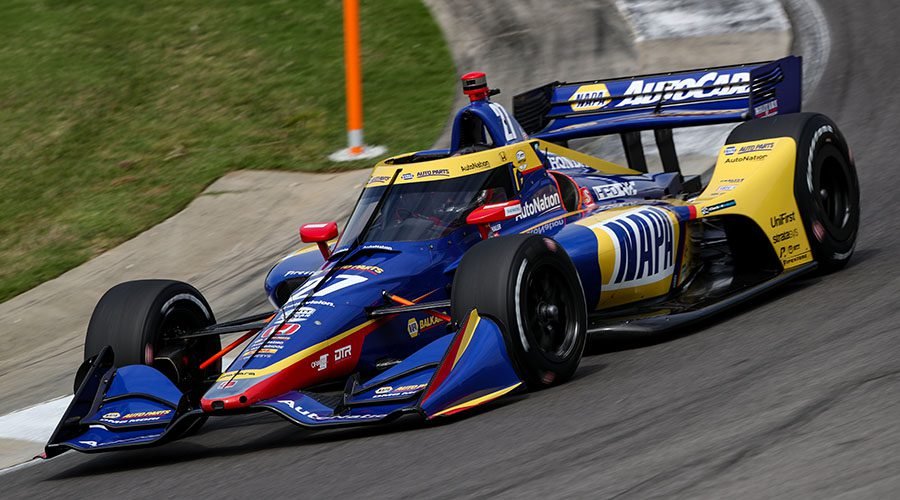International racing events have long served as the pinnacle of motorsports, captivating fans and showcasing the latest automotive innovations, driver talents, and team strategies. From Formula 1’s global circuits to the diverse challenges of the 24 Hours of Le Mans, these events have a significant impact on the motorsport landscape worldwide. Here, we explore the various ways in which international racing events shape and influence global motorsports.
- Promoting Innovation and Technology Development
International racing events often spur rapid advancements in automotive technology. Manufacturers invest heavily in research and development to enhance performance, safety, and efficiency in their vehicles. The competition drives innovation, leading to breakthroughs that can later be applied to commercial vehicles.
Notable Innovations:
– Hybrid and Electric Technology: Events like Formula E and the World Endurance Championship have accelerated the development of electric powertrains and hybrid technology, pushing manufacturers to invest in more sustainable automotive solutions.
– Aerodynamics and Safety Features: Innovations first seen in racing, such as advanced aerodynamics and safety systems, often trickle down to consumer vehicles, contributing to increased performance and safety on public roads.
- Cultural Exchange and Global Reach
International racing events bring together fans, teams, and drivers from diverse backgrounds, creating a unique cultural exchange. These events promote a global motorsport community that transcends national boundaries, fostering connections among fans and participants.
Global Engagement:
– Fan Demographics: Events like the Monaco Grand Prix and the Indianapolis 500 attract a multinational audience, elevating the global status of motorsport and broadening its appeal.
– Cultural Influence: Racing events often incorporate local traditions and elements, enhancing the cultural significance of the event and fostering a sense of unity among fans across the world.
- Economic Impact on Host Locations
Investing in the infrastructure to host major international racing events can significantly boost the economy of a host region. The influx of visitors, media coverage, and increased tourism can elevate the local economy and promote business opportunities.
Economic Benefits:
– Tourism: Major events attract fans who contribute to local businesses, from hotels and restaurants to shops and entertainment venues.
– Job Creation: Events require a substantial workforce for planning, logistics, security, and operations, creating job opportunities within the community.
- Driver Development and Opportunities
International racing events provide valuable platforms for drivers to showcase their talent. Young racers can gain exposure and experience, opening doors to professional contracts and sponsorship opportunities.
Pathways to Success:
– Scouting Talents: Teams and sponsors often scout talent across international events, identifying potential future stars in motorsports.
– Diverse Experiences: Driving in various conditions and types of competition prepares drivers for diverse racing scenarios, enhancing their adaptability and skill sets.
- Environmental Awareness and Sustainability Efforts
As global awareness of environmental issues grows, international racing events are beginning to take the lead in promoting sustainability. The motorsport industry is increasingly focusing on reducing its carbon footprint and developing eco-friendly practices.
Sustainable Initiatives:
– Carbon Neutrality: Series such as Formula E advocate for sustainability not only in their vehicles but also in their operational practices, encouraging teams and event organizers to minimize environmental impacts.
– Renewable Energy: Many racing circuits are investing in renewable energy sources to power events, setting an example for the automotive industry and the general public.
- Increased Competition and Rivalries
International racing events generate fierce competition, creating legendary rivalries that captivate audiences and enhance the spectacle of motorsports. These rivalries fuel media narratives and enhance engagement among fans.
Spotlight on Rivalries:
– Manufacturer Rivalries: High-stakes competition between manufacturers can redefine brand identities, attract sponsorships, and inspire fans. The long-standing rivalry between Ferrari and Mercedes in Formula 1, for instance, has been a significant draw for fans worldwide.
– Driver Rivalries: Intense battles between top drivers create compelling storylines that heighten interest in races, drawing in casual fans and generating media buzz.
Conclusion
International racing events play a pivotal role in shaping the future of global motorsports. Through their impact on technology, culture, economics, and sustainability, these events not only entertain fans but also drive innovation and positive change within the automotive industry. As motorsport continues to evolve, the influence of these prestigious events will remain critical in advancing the sport while promoting inclusivity, sustainability, and excitement on a global scale. Whether through thrilling races or fostering new talents, the world of international motorsports is poised to captivate audiences for generations to come.









